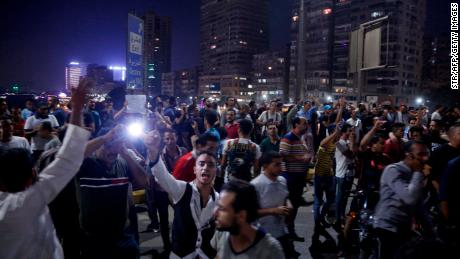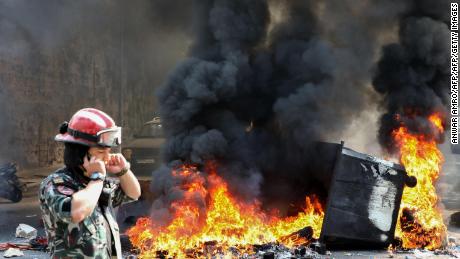A new wave of Arab protesters say, ‘It’s the economy, stupid!’

Egyptians brave the wrath of the security forces to resurrect the battle cry of the ill-fated 2011 revolution: "The people want the downfall of the regime." This isn't about regional rivalries, the Arab-Israeli conflict, terrorism or even a yearning for greater freedom. This time it's about the economy, corruption and the failure of elites and politicians (usually one and the same) to provide basic public services, and at least a glimmer of hope that the lives of ordinary people in these countries will improve.
Iraq's wasted potential
Iraq should be a fabulously wealthy country. It floats on oil and has huge agricultural potential. But 16 years after the fall of Saddam Hussein, and two years after the defeat of ISIS, its economy is at best sluggish, unemployment remains high, it's plagued by daily electricity cuts and the water in cities such as Basra is undrinkable.Transparency International puts Iraq in the top tier of the world's most corrupt countries. Bribes and graft, ranging from the petty to the stratospheric, are a fact of life.In late 2017, then-Iraqi Prime Minister Haidar Al-Abadi warned that "the battle against corruption will be more dangerous than the battle against terrorism."He was right. Iraqis united and defeated ISIS. If the government of now-Prime Minister Adil Abdel Mahdi has entered the battle against corruption, it is losing.
Grim reality in Egypt
For the past two weekends, Egyptians have suddenly re-emerged from their silence to protest against the rising cost of living and corruption by the generals who effectively run the government and key components of the economy.The protests were sparked by videos posted by former actor and contractor Muhammad Ali, now in Spain, who detailed what he claimed were instances of extravagance, corruption and embezzlement by, among others, Field Marshall-turned President Abdel Fattah el-Sisi (Sisi has dismissed the allegations as "lies and slanders").The Egyptian economy is one of the fastest growing in the region, expanding by 5.6% last year. But the macroeconomic façade hides a grim reality: Finance Minister Mohamed Maait recently told Bloomberg that Egypt needs to grow by as much as 8% to absorb the two and a half million people entering the job market every year. This summer the Egyptian government published a report on household finances indicating that a third of Egyptians were classified as poor, up from 28% in 2015. Since coming to power in 2013, Sisi's government has slashed state subsidies and the value of the Egyptian pound has fallen dramatically. The lives of ordinary Egyptians, never easy, have become even harder.
Lebanon loses ground
Ignore all the colorful stories you've read and reports you've seen about "hipster" Beirut and its glamorous, carefree nightlife. Those who can actually afford it are a small, conspicuously consuming cosmopolitan minority. Almost a third of all Lebanese live below the poverty line, and more are falling below it every day. Here I regularly hear tales of woe, of fathers desperate to find work for their university-educated sons and daughters, anything, anywhere; of people who simply can't make ends meet.  One acquaintance told me if the US or Canadian or Australian embaRead More – Source
One acquaintance told me if the US or Canadian or Australian embaRead More – Source




